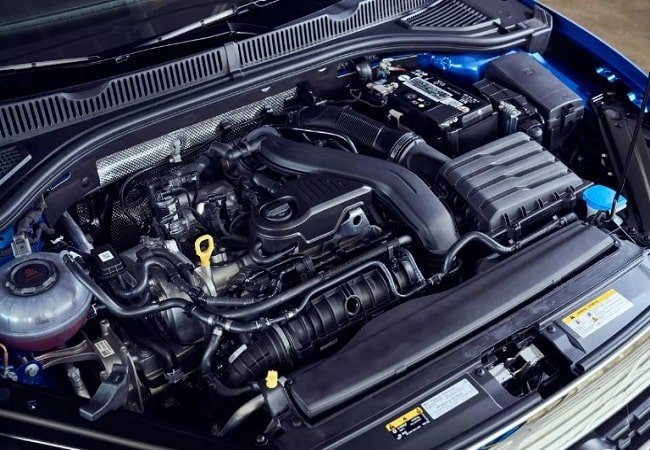A car engine is a complex machine that requires a lot of heat to function properly. However, if the engine gets too hot, it can overheat and cause serious damage. Overheating can be caused by a number of factors, including low coolant levels, a faulty radiator, or a clogged air filter. How to cool down car engine while driving? If you notice that your car is overheating, it’s important to take steps to cool it down as soon as possible.
How to Handle Engine Overheating
If you notice that your car is overheating, there are a few things you can do to cool it down। The air conditioner puts a strain on the engine, so turning it off can help to cool it down. This will help to draw heat away from the engine.
You have to reduce your speed. Driving at a slower speed will help to reduce the amount of heat that the engine produces. Pull over and let the engine cool down. If your car is overheating, it’s important to pull over and let the engine cool down completely before driving again.
Causes of Engine Overheating
There are a number of factors that can cause a car engine to overheat, including:
- Low coolant levels: Coolant helps to keep the engine cool by circulating through the engine and absorbing heat. If the coolant levels are low, the engine will not be able to cool down properly.
- Faulty radiator: The radiator is responsible for transferring heat from the engine to the outside air. If the radiator is faulty, it will not be able to cool the engine properly.
- Clogged air filter: The air filter helps to prevent dirt and debris from entering the engine. If the air filter is clogged, it will restrict airflow to the engine, which can cause the engine to overheat.
- Defective thermostat: The thermostat regulates the flow of coolant through the engine. If the thermostat is defective, it can cause the engine to overheat.
- Overworking the engine: Overworking the engine can cause it to overheat. This can happen if you are driving at high speeds for extended periods of time or if you are towing a heavy load.
Consequences of an Overheated Engine
If an overheated engine is not cooled down properly, it can cause serious damage. The most common damage caused by overheating is a blown head gasket. A blown head gasket can cause coolant to leak into the oil or oil to leak into the coolant. This can damage the engine and lead to costly repairs.
Other potential consequences of an overheated engine include:
- Engine seizure: This occurs when the metal parts of the engine expand due to heat and become stuck together. Engine seizure can cause extensive damage to the engine and may require a complete rebuild.
- Engine failure: In some cases, an overheated engine can fail completely. This can be a very expensive repair and may require the purchase of a new engine.
Why You Should Keep Your Engine Cool
It’s important to keep your engine cool for a number of reasons, including:
- Prevent damage to the engine: As mentioned above, overheating can cause serious damage to the engine.
- Improve fuel efficiency: A cool engine is more efficient than an overheated engine. This means that you’ll get better gas mileage if you keep your engine cool.
- Reduce emissions: A cool engine produces fewer emissions than an overheated engine. This is good for the environment and can help to improve air quality.
Identifying Warning Signs
There are a few warning signs that your car engine may be overheating, including:
- Temperature gauge is rising: The temperature gauge is a good indicator of the engine’s temperature. If the temperature gauge is rising, it’s a sign that the engine may be overheating.
- Steam coming from under the hood: Steam is a sign that the engine is overheating. If you see steam coming from under the hood, it’s important to pull over and let the engine cool down.
- Burning smell: A burning smell is another sign that the engine may be overheating. If you smell something burning, it’s important to pull over and let the engine cool down.
- Loss of power: If your car loses power, it may be a sign that the engine is overheating. This is because an overheated engine cannot produce as much power.
Recognizing Symptoms
In addition to the warning signs listed above, there are a few symptoms that may indicate that your car engine is overheating. Such as, the engine was running rough. An overheated engine may run rough or shake.
The engine makes strange noises. An overheated engine may make strange noises, such as knocking or ticking. Or if you observe The engine overheating light coming on. Some cars have an overheating light that comes on when the engine reaches a certain temperature
When Are You at Risk of Overheating?
You are at risk of overheating your car engine in the following situations:
Driving in hot weather.Driving with a heavy load.Driving at high speeds for extended periods of time. Idling your car for long periods of time. Also If your car has a faulty radiator, thermostat, or coolant system.
Blasting the Heater and Switching on the Car’s Ventilation System
If you notice that your car is overheating, you can try to cool it down by blasting the heater and switching on the car’s ventilation system. This will help to draw heat away from the engine.
Pulling Over Safely to the Side of the Road to Allow the Engine to Cool Down
If you notice that your car is overheating, it’s important to pull over safely to the side of the road to allow the engine to cool down. Do not continue driving until the engine has cooled down completely.
Techniques for Cooling Down the Engine
Once you have pulled over, there are a few things you can do to cool down the engine:
- Pop the hood and allow heat to escape.
- Check coolant levels and add coolant if necessary.
- Pour cold water on the radiator (caution: only in emergency situations).
Preventive Measures for Engine Cooling
There are a few things you can do to prevent your car engine from overheating, including:
- Regular engine maintenance, including coolant flushes and inspections.
- Checking and replacing faulty radiator fans or belts.
- Monitoring engine temperature during long drives or in hot weather.
Additional Tips for Engine Cooling
In addition to the preventive measures listed above, there are a few additional tips you can follow to help keep your car engine cool, including:
- Using reflective windshield shades or parking in shaded areas.
- Using high-quality engine oil with appropriate viscosity.
- Avoiding excessive idling and heavy loads on the engine.
FAQs
Can I Pour Water On My Engine To Cool It Down?
It is not recommended to pour water on your engine to cool it down. Water can cause the engine to warp or crack. If you need to cool down your engine, use a coolant flush or add coolant to the radiator.
Is It Ok To Drive A Car After It Overheats?
It is not recommended to drive your car after it overheats. Overheating can cause serious damage to the engine. If your car overheats, it is important to pull over and let the engine cool down completely before driving again.
How Long Can A Car Overheat Before Damage?
The amount of time it takes for a car to overheat before damage occurs depends on a number of factors, including the severity of the overheating and the condition of the engine. In general, it is not recommended to allow your car to overheat for more than a few minutes.
What Should You Not Do If Your Car Overheats?
There are a few things you should not do if your car overheats, including:
- Do not open the radiator cap. The radiator cap is under pressure and opening it can cause hot coolant to spray out.
- Do not pour water on the engine. Water can cause the engine to warp or crack.
- Do not drive the car. Overheating can cause serious damage to the engine.
What Should You Never Do If Your Vehicle Is Overheating?
There are a few things you should never do if your vehicle is overheating, including:
- Never open the radiator cap when the engine is hot. Doing so can cause hot coolant to spray out and burn you.
- Never pour water on the engine. Doing so can cause the engine to warp or crack.
- Never drive the car. Overheating can cause serious damage to the engine.
Conclusion
It is important to keep your car engine cool to prevent serious damage. If you notice that your car is overheating, it’s important to take steps to cool it down as soon as possible. By following the tips in this article, you can help keep your car engine running cool and prevent costly repairs.




